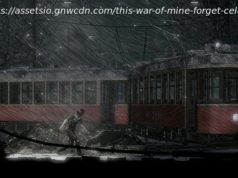Science is a field of progress, and in order to keep moving forward, you’ve got to break down a few walls. If you’re in New York on June 6, come join us for our Science Wake: Eulogies for Failed Theories. It’s a part of the Underground Science Festival, an alternative science festival meant to spotlight how science really works as well as science’s forgotten voices.
Science is a field of progress, and in order to keep moving forward, you’ve got to break down a few walls. If you’re in New York on June 6, come join us for our Science Wake: Eulogies for Failed Theories. It’s a part of the Underground Science Festival, an alternative science festival meant to spotlight how science really works as well as science’s forgotten voices.
Hello, readers. We gather here today to pay our respects to a theory that was and is no longer, whose death tore our knowledge of the very universe to shreds.
We’d like to take this time to say a few words about the luminiferous ether.
As early as the ancient Greeks, scientists and philosophers supposed that space was not truly empty. Instead, a mysterious substance filled the cosmos like a vast ocean, suspending the stars and serving as the medium through which light traveled. Even Isaac Newton once wrote:
After all, physicists have long known that light moved, either as a beam or a wave. And if light traveled as a wave, like sound, then surely it needed to travel through something. The greatest minds in history thought it to be true, so surely it must have been. Even physics great James Clerk Maxwell, whose equations reveal the speed of light, considered these ethereal ideas.
You were a sensical theory, luminiferous ether. And physicists love when things make sense. But science need not make sense—the universe doesn’t give a damn what human beings think.
Scientists wanted to know you better. Some, like Hippolyte Fizeau and Léon Foucault, assuming that you existed when they tried to measure the speed of light. But after Albert Michelson teamed up with Edward Morley in 1882, your death became imminent, because you were never there to begin with.
You died at the hands of light beams bouncing through a series of mirrors. If you permeated space, and if our planet moved through you, then light should travel at different speeds through you, based on the direction of Earth’s travel. But there was no difference, regardless of the light’s direction. Light travels through no medium but the vacuum of space itself.
Even Morley, Michelson, and their peers at the time couldn’t accept your death. Ultimately Albert Einstein’s theory of general relativity finally laid you to rest.
But are you really dead? Said Einstein, at a 1922 address: “We may say that according to the general theory of relativity space is endowed with physical qualities; in this sense, therefore, there exists an ether.” Space contains an innate list of rules, not actual matter. “This ether may not be thought of as endowed with the quality characteristic of ponderable media, as consisting of parts which may be tracked through time. The idea of motion may not be applied to it.”
Even today, your ghost lingers. It seems that the universe is filled with something called dark matter, whose gravity-inducing effects are without any explanation. And then there’s dark energy, a mysterious force driving the universe to expand faster and faster as time passes. Are these composed of invisible matter, or will some other ideas prove them as ether in disguise?
Science is a tool to get at the truth, but it is not the truth itself. And though you’re gone, we do not despair. Finding the truth requires new ideas, and it requires luminiferous ethers to disprove. We’ll never know what’s right unless we know everything that’s wrong.
Rest in peace… maybe. Perhaps someday we’ll find that you’ve been hiding in existing theory all along.






